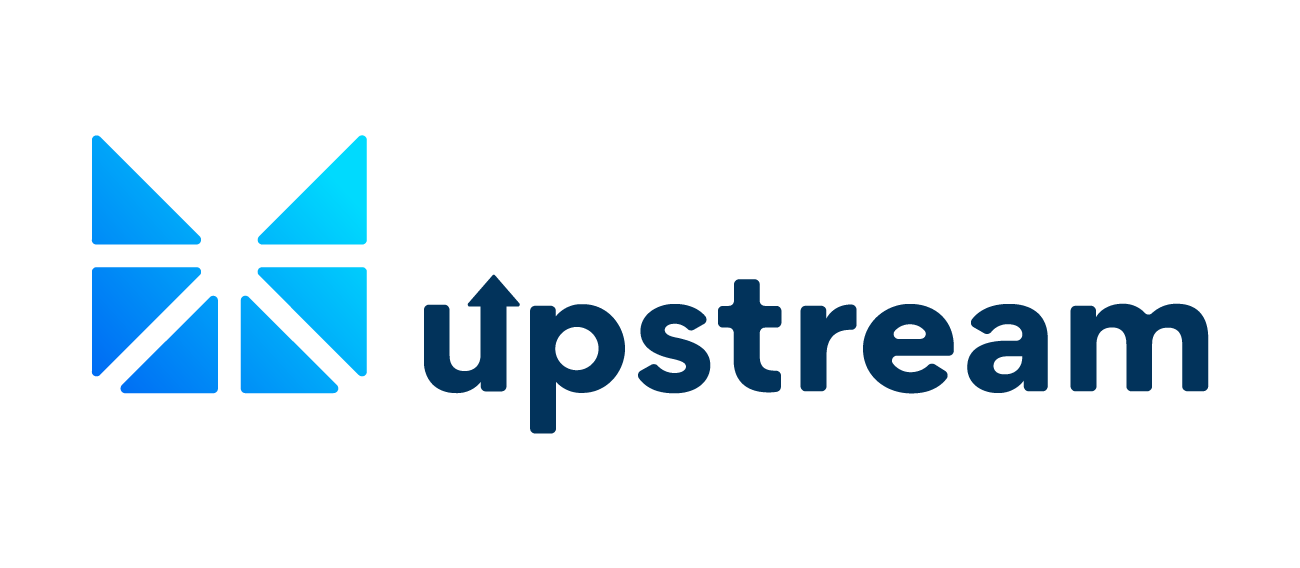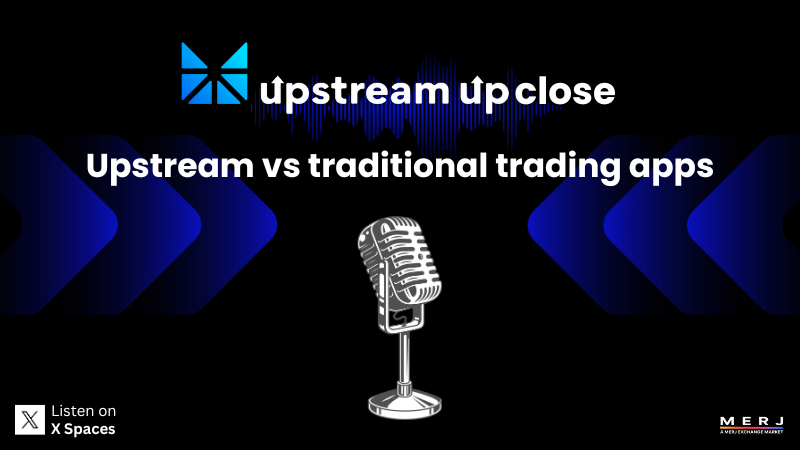Exploring the future of capital markets as upstream challenges traditional trading apps

By Fernanda De La Torre
Last week, the Upstream team published the ninth episode of their new Twitter Spaces series, ‘Upstream Up Close’, featuring 10–15 minute conversations about NFTs, blockchain, and trading on Upstream. The ninth episode put Upstream head-to-head against traditional trading apps.
Listen HERE to Upstream Up Close: Upstream vs Traditional Trading Apps.
Leading the conversation were Vanessa, Upstream’s Head of Marketing, Amanda, Client Success Manager, and Anastasia, and Fernanda, Digital Marketing Specialists, who shared key differences between Upstream and other trading apps and discussed the impacts the distinctions could have on capital markets.
The Challenges vs Upstream’s Solution
The challenges for non-U.S. traders in accessing U.S., OTC, and other international companies were discussed in this episode. Traditionally, it has been cumbersome for retail investors outside the U.S. to purchase listed securities, particularly from the U.S. and Canada. Many brokerage firms don’t offer this accessibility and those that do often impose additional fees on international traders.
Upstream addresses these challenges by offering a user-friendly trading app that allows non-U.S. users to deposit and buy company shares directly. The process is streamlined — download the app, complete a light-touch KYC process, and fund the account using various payment methods.
Key Differentiators
Upstream is a global trading app. It’s a MERJ Exchange market for users to deposit, buy and sell stocks and NFTs from U.S. and international companies. Note that U.S. persons may not deposit, buy, or sell securities on Upstream.
One of the key differentiators that set Upstream apart from traditional trading apps is its direct access to the market. This allows users to trade without all of the intermediaries that may eat into investors’ returns, leading to greater trading opportunities and reduced cuts from middlemen.
Many platforms promote 0% trading fees, but this doesn’t paint the full picture. Stockbrokers are paid by market makers for their clients’ order flows. Then market makers simply widen their ‘bid and ask’ spreads to cover this cost, meaning all retail trade prices are impacted. Critics even argue that it may incentivize brokers to prioritize and direct trades to market makers who offer higher payments rather than focusing on getting the best price execution for their clients.
Another key differentiator is Upstream’s public, onchain orderbooks which offer transparency and real-time settlement, providing a fair and honest trading community. Additionally, we enforce a no-short-selling policy through smart contracts, ensuring a level playing field for all participants.
Upstream’s smart-contract technology also allows for the acceptance of digital currency in the form of USDC stablecoin. This feature streamlines on/off ramps for both digital currency and USD holders. Upstream maintains certain insurances and bankruptcy protections for cash and securities held by Upstream Members. Details here.
Additionally, our non-custodial approach works to give investors greater control over their assets. Unlike custodial platforms, Upstream users retain direct control of their securities and NFTs in their digital wallets/accounts, with transactions secured through biometrics.
Lastly, Upstream’s innovative Web3 shareholder engagement strategies enable issuers to turn shareholders into customers and vice versa through non-fungible tokens (NFTs). The digital coupon program, utilizing NFTs, allows shareholders to claim and redeem digital rewards, promoting engagement and rewarding supporters.
Looking Ahead
Upstream is ushering in the future of capital markets. A transparent, accessible, and global trading hub for issuers across all markets to reach digital-first investors.
Upstream is really expanding focus to new international issuers. We just welcomed our first few issuers at the beginning of this year and are thrilled with how quickly our investor community has grown.

Listen here: https://twitter.com/i/spaces/1gqGvQwwAQeKB?s=20
Upstream is actively accepting listing applications from issuers who are seeking to offer their shares to a modern-day investor pool. Learn more at: https://upstream.exchange/GetListed.
Disclaimer
U.S. persons may not deposit, buy, or sell securities on Upstream.
This communication shall not constitute an offer to sell securities or the solicitation of an offer to buy securities in any jurisdiction where such offer or solicitation is not permitted. NFTs have no royalties, equity ownership, or dividends. NFTs are for utility, collection, redemption or display purposes only. Anyone may buy and sell NFTs on Upstream. All orders for sale are non-solicited by Upstream and a user’s decision to trade securities must be based on their own investment judgement.
Upstream is a MERJ Exchange market. MERJ Exchange is a licensed Securities Exchange, an affiliate of the World Federation of Exchanges, a National Numbering Agency and member of ANNA. MERJ is regulated in the Seychelles by the Financial Services Authority, https://fsaseychelles.sc/, an associate member of the International Association of Securities Commissions (IOSCO). MERJ supports global issuers of traditional and digital securities through the entire asset life cycle from issuance to trading, clearing, settlement, and registry. It operates a fair and transparent marketplace in line with international best practices and principles of operations of financial markets. Upstream does not endorse or recommend any public or private securities bought or sold on its app. Upstream does not offer investment advice or recommendations of any kind. All services offered by Upstream are intended for self-directed clients who make their own investment decisions without aid or assistance from Upstream. All customers are subject to the rules and regulations of their jurisdiction. By accessing the site or app, you agreed to be bound by its terms of use and privacy policy. Company and security listings on Upstream are only suitable for investors who are familiar with and willing to accept the high risk associated with speculative investments, often in early and development stage companies. U.S. persons may not deposit, buy, or sell securities on Upstream. There can be no assurance the valuation of any particular company’s securities is accurate or in agreement with the market or industry comparative valuations. Investors must be able to afford market volatility and afford the loss of their investment. Companies listed on Upstream are subject to significant ongoing corporate obligations including, but not limited to disclosure, filings, and notification requirements, as well as compliance with applicable quantitative and qualitative listing standards.
Forward-Looking Statements
This communication contains “forward-looking statements.” Such statements may be preceded by the words “intends,” “may,” “will,” “plans,” “expects,” “anticipates,” “projects,” “predicts,” “estimates,” “aims,” “believes,” “hopes,” “potential,” or similar words. Forward-looking statements are not guarantees of future performance, are based on certain assumptions, and are subject to various known and unknown risks and uncertainties, many of which are beyond the Company’s control, and cannot be predicted or quantified, and, consequently, actual results may differ materially from those expressed or implied by such forward-looking statements. Such risks and uncertainties include, without limitation, risks and uncertainties associated with (i) difficulties in obtaining financing on commercially reasonable terms; (ii) changes in the size and nature of our competition; (iii) loss of one or more key executives or brand ambassadors; and (iv) changes in legal or regulatory requirements in the markets in which we operate. The Company assumes no obligation to publicly update or revise its forward-looking statements as a result of new information, future events or otherwise.

